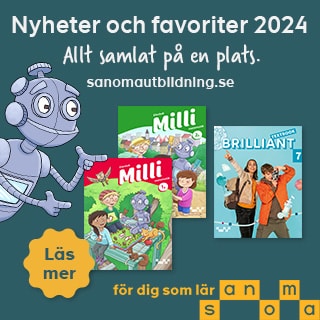Kommunikation i förskolan: förskollärares och barnskötares kommunikation med föräldrar i ett digitaliserat medielandskap
Vilken roll ges förskolepersonalen respektive barnskötare i kommunikationen med föräldrarna? Det är den övergripande forskningsfrågan i Linn Eckeskogs avhandling.
Linn Eckeskog
Docent Annika Egan Sjölander, Umeå universitet Professor Per-Olof Erixon, Umeå universitet
Professor Jakob Svensson, Malmö universitet
Umeå universitet
2019-02-01
Kommunikation i förskolan: förskollärares och barnskötares kommunikation med föräldrar i ett digitaliserat medielandskap
Communication in pre-school : pre-school teachers and childcare workers communicating with parents in a digitalised media landscape
Institutionen för kultur- och medievetenskaper
Communication in pre-school : pre-school teachers and childcare workers communicating with parents in a digitalised media landscape
The overall aim of this doctoral thesis is to study communication work among personnel in Swedish pre-schools, with a particular focus on mediated communication with parents. The purpose is also to analyse what roles are given to the professionals in this communication, to identify what subject positions are constructed and to identify how boundaries are managed within the communication practices.
The primary theoretical framework of the thesis is social constructivism and symbolic interactionism. The pre-school organisation and identities are regarded as in a perpetual state of becoming and changes in the media landscape are viewed as rearranging the preconditions for communication practices. Technical innovations are regarded as social products at both ends. Results build upon observations in five pre-schools, interviews with 32 pre-school employees and multimodal analysis of communication material directed to parents. Additional interviews and document studies were conducted in the form of a case study, in order to gain knowledge of the implementation of a digital learning platform.
The study shows that the communication environments differ between pre-schools, e.g. concerning how and which mediums are used. Several obstacles to communication are identified, of which many (but not all) are related to the socioeconomic status of parents. Within the mediated communication, pre-school personnel to some extent position themselves as experts concerning practical and pedagogical questions, whilst parents are positioned as actors in need of guidance. A major function of mediated communication is assigning parents’ responsibilities in relation to the pre-school, along with norms regarding what constitutes the “good” (pre-school) parent. Boundary work in relation to parents is conducted using different modalities, used for hedging but also for establishing professional positions. Digitalisation appears as a negative force when introduced top-down, without regards to the needs, previous practices and preconditions within a particular pre- school; but as a positive force when initiated by the professionals themselves and when responding to particular needs within specific pre-schools. As expectations on digitalisation in pre-schools increase, questions of preconditions and communication skills grow in prominence.
Although expectations on pre-school professionals’ communication skills are high, communication with parents is not sufficiently acknowledged as part of the actual work in pre-schools. A sign of (and reasons for) the under prioritisation of communication work is the uneven and arbitrary preconditions for communicating, in the forms of relevant education, time and technical equipment. The lack of resources can be connected to three issues: A working environment issue (discrepancy between expectations and preconditions), a democratic issue (communication being random rather than planned/ considered) and a professional issue (multimodal communication not reflecting the professional identity that informants strive towards).
Communication with parents (and surrounding society) needs to be acknowledged as part of the work in pre-school, and the personnel need to be given the necessary skills and conditions for communication, in order to provide equality of ac- cess to the parents, but also to give personnel the possibilities of communicating about and reflecting the pre-school organisation as they know it.
Relaterade länkar

Undervisa i artificiell intelligens
 Gy–Vux
Gy–Vux 







